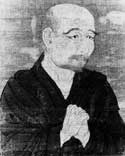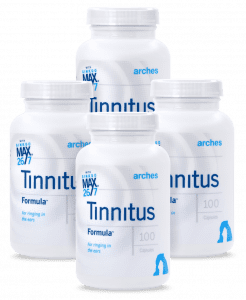By Barry Keate
Barry Keate, has lived with tinnitus over 40 years and has published 150+ research articles on numerous aspects of tinnitus. He is an expert on the condition and a well-known advocate for those with tinnitus.

This amazing herbal extract is one of the most beneficial supplements for health, longevity and mental wellbeing. Christopher Hobbs, the noted herbalist, calls ginkgo the “elixir of youth.” Many herbalists say that ginkgo is the single most beneficial herb for general wellbeing and if an individual were to take only one supplement, it should be ginkgo.
The ginkgo tree is the oldest surviving tree species in the world and dates back at least 200 million years. The tree is very hardy, resistant to insects, mold, bacteria, viruses, and pollution. For this reason, it is now planted extensively in American cities and used as a shade tree. The tree is so hardy that a solitary ginkgo was the only tree to survive the atomic blast at Hiroshima. Ginkgo trees can live for 1,000 years and grow to 100-120 feet high.

Before the Ice Age, the tree was found worldwide. The species was nearly destroyed during that time and, legend has it, survived only because it was carefully cultivated by Buddhist monks in China and Japan who believed it to be sacred.
The medicinal uses of Ginkgo biloba can be traced back to the oldest Chinese medical literature (2800 B.C.). Traditional Chinese medicine prescribes ginkgo leaves for their ability to “benefit the brain.” Ginkgo leaf extracts are now among the leading prescription medicines in both Germany and France, where over 100,000 physicians write more than 10 million prescriptions yearly.
In the 1960s, German researchers first extracted the active ingredients of ginkgo, called Ginkgo biloba Extract or GbE. They named the extract GbE 761 which is known in the US as Ginkgo biloba 24/6. This reflects that the standard extract has 24% ginkgo flavone glycosides and 6% terpene lactones. Amounts of other constituents, notably bilobalide were also defined.
They also began investigating the effects of GbE in numerous clinical studies. Over the past 50 years, a wealth of information produced by these studies has shown GbE to be helpful for many of the problems that plague mankind and essentially has no negative side effects. A clinical study on GbE, using over 8,000 individuals, showed that only 4 out of every 1,000 (0.4%) experienced some form of allergic reaction to GbE, which was most often expressed as an upset stomach, rash or headache. When ginkgo was discontinued, the adverse reactions disappeared.
The many positive effects of ginkgo are:
1 – Potent antioxidant, eliminating toxins from the body.
2 – Promotes blood vessel health, fights hardening of the arteries and reduces plaque build-up.
3 – Increases absorption of oxygen and glucose in the brain.
4 – Inhibits the action of PAF, a leading cause of stroke.
5 – Improves sexual function in men.
6 – Acts as an antidepressant.
7 – Fights cancer development.
8 – Antibiotic properties.
Sounds almost too good to be true, but it is. Ginkgo biloba is one of the most healthful herbs that you can take. Let’s take these points one at a time.
1 – Ginkgo as a Potent Antioxidant
Free radicals are highly reactive molecules that are generated inside the body and also by environmental toxins, saturated and processed fats, radiation due to the weakened ozone layer, herbicides, pesticides and lead and other pollutants from auto exhaust. Normally free radicals are mopped up by enzymes the body produces but in modern times our systems can easily be overwhelmed by pollutants, processed foods and chemicals used in agriculture, oil refining and power production. The issue of free radicals is becoming a major health concern.
Free radicals are involved in many types of tissue damage and are believed to be responsible for over 100 human diseases, including cancer. There is even a theory called the “free radical theory of aging” that holds that free radicals are a major contributor to the aging process. This theory is now gaining wide acceptance among the medical community.
The chemical compounds in GbE responsible for fighting free radicals are the ginkgo flavonoids. These flavonoids have been shown in laboratory studies to be up to 10 times more potent free radical scavengers than flavonoids found in other plant sources, such as citrus peels or blueberries.
2 – Ginkgo Fights Hardening of the Arteries – Plaque Build-up & Heart Disease
Arteriosclerosis, often referred to as “hardening of the arteries,” reduces the proper flow of blood through a thickening of the arterial walls. Atherosclerosis is caused by excessive plaque build-up in the blood vessels, due to deposits of fatty substances, which also reduces blood flow. Both are extremely dangerous conditions reducing the blood vessel’s ability to expand which can lead to coronary artery disease. Ginkgo has a tonic effect on the lining of blood vessels which allows the blood vessels to expand and contract with the pumping of the heart. It also helps dissolve plaque on blood vessel walls and keeps it dissolved until it can be eliminated by the body.
A German study, reported in April of 1992, showed that GbE, taken over a long period, reduces cardiovascular problems, including heart disease, high blood pressure, excess cholesterol and diabetes. In nine clinical studies of GbE versus placebo in patients with peripheral arterial insufficiency, GbE was shown to be superior to placebo. GbE was also shown to be far superior to standard medical therapy in the treatment of peripheral arterial insufficiency.
3 – Ginkgo Increases Absorption of Oxygen and Glucose in the Brain
The brain needs two key substances in order to maintain proper functioning; glucose (sugar) and oxygen. Glucose and oxygen are the basic fuels for the brain. Ginkgo has been shown to increase the uptake and utilization of glucose and improves oxygen use by increasing the blood supply.
One of the most encouraging findings about ginkgo is that it tends to concentrate in the brain tissues. This provides beneficial effects on many aspects of brain functioning, especially symptoms associated with the aging process. Cerebral vascular insufficiency (lack of proper blood flow to the brain) is extremely common among the elderly of developed countries, owing to the high prevalence of arteriosclerosis. In clinical studies, GbE has shown to produce a significant regression of the major symptoms of cerebral vascular insufficiency and impaired mental performance. These symptoms include short-term memory loss, vertigo, headache, tinnitus, lack of vigilance and depression. It appears that by increasing cerebral blood flow, and therefore oxygen and glucose utilization, GbE offers relief from these presumed “side-effects” of aging and may offer significant protection against their development.
As well as improving blood supply to the brain, experimental and clinical studies show that GbE increases the rate at which information is transmitted at the nerve cell level. This effect is not limited to the elderly; one double-blind study showed the reaction time in healthy young women performing a memory test was improved significantly after the administration of GbE.
Ginkgo also shows great promise in cases of senility and Alzheimer’s disease. Although preliminary studies in established Alzheimer’s patients are very promising, it appears that GbE is most effective in delaying mental deterioration in the early stages of the disease.
4 – Ginkgo Inhibits PAF – a leading cause of stroke
Another interesting aspect of ginkgo’s activity is its ability to block a compound called Platelet-Activating Factor (PAF). PAF activates several kinds of immune cells which secrete chemicals that cause inflammation and enhance blood clotting. Chronic stressful conditions, including a diet high in processed foods and exposure to allergens can over-stimulate the production of PAF. When PAF in turn activates too many immune cells, the immune system can go haywire, producing conditions such as asthma, toxic shock, atherosclerosis and stroke.
When blood platelets encounter PAF, they change shape and begin to stick together. This is necessary to stop bleeding but when they clump together on a chronic basis, they make blood more viscous and secrete chemicals that cause blood vessels to constrict and help form plaque deposits. When there is too much PAF in the blood, platelets create conditions which lead to heart disease, stroke and other circulatory disorders.
GbE has also been shown to reduce the effects of allergic conditions owing to the inhibition of PAF. One study investigated the ability of ginkgo to block the effects of PAF injected into the skin. Normally PAF injection causes the immediate formation of a hive. However, if the ginkgo was given before the PAF, it effectively counteracted the reaction and reduced the hive by over 60%. Several European countries are investigating GbE for effectiveness in treating asthma, eczema and other allergies in which PAF plays a central role.
5 – Ginkgo Improves Sexual Function in Men
In a recent study, 60 patients with erectile dysfunction, who had not responded to medical treatment, were treated with GbE for 12 to 18 months. The first signs of improved blood flow were seen after 6 to 8 weeks. After 6 months of therapy, 50% of the patients had regained potency. Another 20% responded successfully to medical treatment that had not previously been effective.
6 – Ginkgo as a Natural Antidepressant
In a study, 40 elderly patients, diagnosed with depression, and who had not benefited fully from standard antidepressant drugs, were given GbE three times daily or a placebo. By the end of the fourth week, the average total score on the Hamilton Depression Scale, for those taking the ginkgo, fell from 14 to 7. At the end of the 8 weeks study, the GbE group had dropped to 4.5. The placebo group dropped only from 14 to 13.
7 – Ginkgo Fights Cancer Development
Cancer cells rely on two conditions that are necessary for a tumor to grow; angiogenesis and the inhibition of apoptosis.
Angiogenesis is the process of new blood vessel growth from existing blood vessels. Tumors cannot grow larger than 1 – 2 mm (approximately 1/16”) if deprived of oxygen and other essential nutrients. At this point cancerous tumors induce blood vessel growth by secreting growth factors. Blood vessels literally grow toward a tumor to continue feeding it.
Apoptosis refers to programmed cell death. Every cell in the body has a programmed life span. In this way old cells are replaced by newer ones. Cancerous growths disrupt this mechanism and allow cancer cells to continue growing after their “use-by-date”. They are then able to replicate and pass on DNA mutations that make their progeny also cancerous.
GbE has powerful angiogenic properties which stop the development of blood vessel growth toward tumors. It also regulates apoptosis and brings cancerous cells into balance with healthy cells.
A more complete description of how GbE inhibits cancer growth can be seen in a previous article.
8 – Antibiotic Properties of Ginkgo
Based on an ancient Chinese text, researchers at Emory University in Atlanta, GA tested an extract made from ginkgo seeds, or nuts. They conducted tests on six pathogens known to cause skin and soft tissue infections. Several were alleviated, including:
- Staphylococcus aureas, which is common and sometimes responsible for multidrug-resistant MRSA.
- Cutibacterium acnes, which can cause acne, dandruff and psoriasis.
- Streptococcus pyogenes, which can cause impetigo and necrotizing fasciitis.
 So whether you take ginkgo for depression, to improve memory or promote longevity, to prevent stroke and heart disease or to reduce tinnitus, making ginkgo part of your daily routine is a good idea. This simple herb has been protecting the health of human kind for centuries. With increased acceptance and awareness by both the lay and medical communities, it will be helping humankind for centuries to come.
So whether you take ginkgo for depression, to improve memory or promote longevity, to prevent stroke and heart disease or to reduce tinnitus, making ginkgo part of your daily routine is a good idea. This simple herb has been protecting the health of human kind for centuries. With increased acceptance and awareness by both the lay and medical communities, it will be helping humankind for centuries to come.
Arches Tinnitus Formula includes our proprietary ginkgo extract, Ginkgo Max 26/7® which exceeds the standard of GbE 761. Ginkgo Max 26/7 is a highly concentrated, more potent ginkgo extract than anything found on the market. It was specifically designed for people with tinnitus and provides higher levels of active ingredients to provide the very best health benefits possible.
-
Bibliography
• Hobbs, Christopher. Ginkgo, the Elixir of Youth. 7th ed. Loveland, Colorado: Interweave Press, 1991.
• Michael T. Murray, N.D. The Healing Power of Herbs. 2nd ed. Rocklin, California: Prima Publishing, 1995. 143-161
